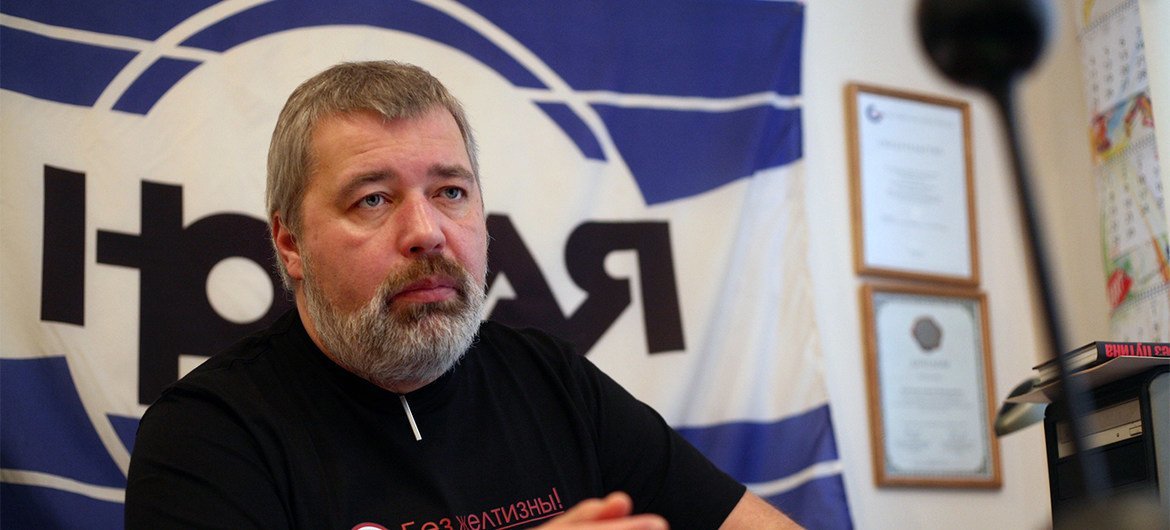“The ‘co-operation’ is supposed to be punishable only if its aim is to assist in ‘activities knowingly aimed against the state security’. In practice, however, there is no guarantee that human rights work will not be considered a threat to the state security”, she underscored, adding that that same law has criminalised broadly defined “public calls for activities aimed against state security”.The independent expert noted “with regret” that the Russian Government “continues large-scale efforts to silence critical voices and dismantle civil society”.
Laws against defenders
In the wake of their on-going war in Ukraine, Mary Lawlor also urged authorities to repeal “restrictive and discriminatory laws”, and reiterated her and other experts’ call made in July, against the Russian ‘civil society shutdown’.
The UN Special Rapporteur also expressed her concern for the expansion of laws aimed at “foreign agents” and “undesirable organisations”, which according to her, the Government has resorted to for years, to restrict, stigmatise and discriminate against human rights defenders.
She further explained that on 14 July, the Russian Parliament adopted amendments to the criminal code introducing prison terms of up to eight years for those convicted of “confidentially co-operating” with a foreign state, international or foreign organisation.
Pressure on foreign organisations
These independent experts operate in their individual capacity and are neither UN staff, nor are they paid for their work.
Dmitry Muratov, Russian journalist and 2021 Nobel Peace Prize laureate in his office as Editor-in-Chief of Novaya Gazeta
“The Russian Government is destroying civil society day by day and if the world does not lend a hand to Russian human rights defenders now, it will face the human rights consequences for decades to come”, she concluded.
Ms. Lawlor added that 276 people, many of whom protect and promote human rights, are currently on various ‘foreign agents’ registers restricting their activities, and a related new law entering into force on 1 December, will allow authorities to expand the regulations.
“Russian human rights defenders told me how this stigmatising label scares away some partners and even people whose rights they defend. New vague and broad provisions of the law further marginalise the human rights community, which is completely unacceptable”, she warned.
‘Silencing voices’
Ms. Lawlor urged the international community to support human rights defenders in Russia and in exile.
 Ms. Lawlor added that it was “deeply alarming” that authorities have introduced further punitive laws targeting human rights defenders which have had “a suffocating effect on civil society”.
Ms. Lawlor added that it was “deeply alarming” that authorities have introduced further punitive laws targeting human rights defenders which have had “a suffocating effect on civil society”.
“The work of most independent media outlets continues to be suspended or stopped”, she highlighted, putting as an example the stripping of the print license of Novaya Gazeta, a Nobel Peace Prize winner and one of the oldest Russian media outlets which covers human rights issues, as well as other investigative work.
“I…continue to be concerned about the use of the criminal provisions introduced shortly after the invasion of Ukraine to target critical voices. Under the ‘fake war news’ law, 114 people have already been prosecuted since its adoption on 4 March 2022”, she said in a statement.
UN Special Rapporteurs are appointed by the UN Human Rights Council, which is based in Geneva, to report on specific country situations or thematic issues.
Since 2015, 65 foreign and international non-governmental organisations have been declared “undesirable” and banned in Russia without recourse to any court challenge.